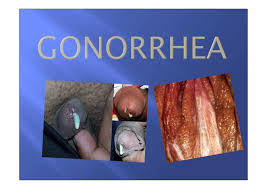A new antibiotic class has been found to be effective against the sexually-transmitted infection gonorrhoea in the laboratory, according to UK researchers.
The World Health Organization (WHO) has listed drug-resistant gonorrhoea, caused by the Neisseria gonorrhoeae bacterium, as a high priority infection that poses a great threat to human health.
“This new finding might help us take the lead in the arms race against antimicrobial resistance”
The researchers noted that antibiotics had become less effective against certain bacteria, including N. gonorrhoeae, largely due to overuse and misuse of antimicrobials.
Some strains of N. gonorrhoeae are now currently untreatable due to the lack of alternative treatments, they highlighted in the journal Antimicrobial Agents and Chemotherapy.
The standard WHO recommended treatment combines the antibiotics ceftriaxone and azithromycin.
But, for the first time, researchers from Imperial College London and the London School of Hygiene and Tropical Medicine have now tested the new antibiotic, closthioamide, on gonorrhoea samples in the laboratory.
The researchers tested 149 samples of N. gonorrhoeae from hospital patients with infections in the throat, urethra, cervix and rectum.
They found that, at very low amounts (0.125mg/L), closthioamide was effective against 146 of 149 samples taken from patients, and against all of the samples provided by WHO which were known to be resistant to other antibiotics.
Although still yet to be tested on animals and humans, the researchers said the antibiotic could be an exciting new step in the fight against the disease.
Dr John Heap, lead author from Imperial, said: “The imminent threat of untreatable antibiotic-resistant infectious diseases, including gonorrhoea, is a global problem, for which we urgently need new antibiotics.
“This new finding might help us take the lead in the arms race against antimicrobial resistance,” he said.
“Our initial laboratory studies show that closthioamide has the potential to combat N. gonorrhoeae”
Victoria Miari
He added: “The next step will be to continue lab research to further assess the drug’s safety and effectiveness. Despite showing tremendous promise, it will be a number of years before, and if, we can use the drug in real life human cases.”
He highlighted that discovering and developing new antibiotics was difficult and time-consuming.
Dr Heap said: “We believe there are many undiscovered antibiotics out there in nature, but they are difficult to find and test.
“For example, the bacteria which produce closthioamide naturally make only tiny amounts that are not enough to test or use, so we had to chemically manufacture it ourselves by mimicking its natural structure,” he said.
Victoria Miari, lead author from the London School of Hygiene and Tropical Medicine, added: “The results of our initial laboratory studies show that closthioamide has the potential to combat N. gonorrhoeae.










No comments:
Post a Comment